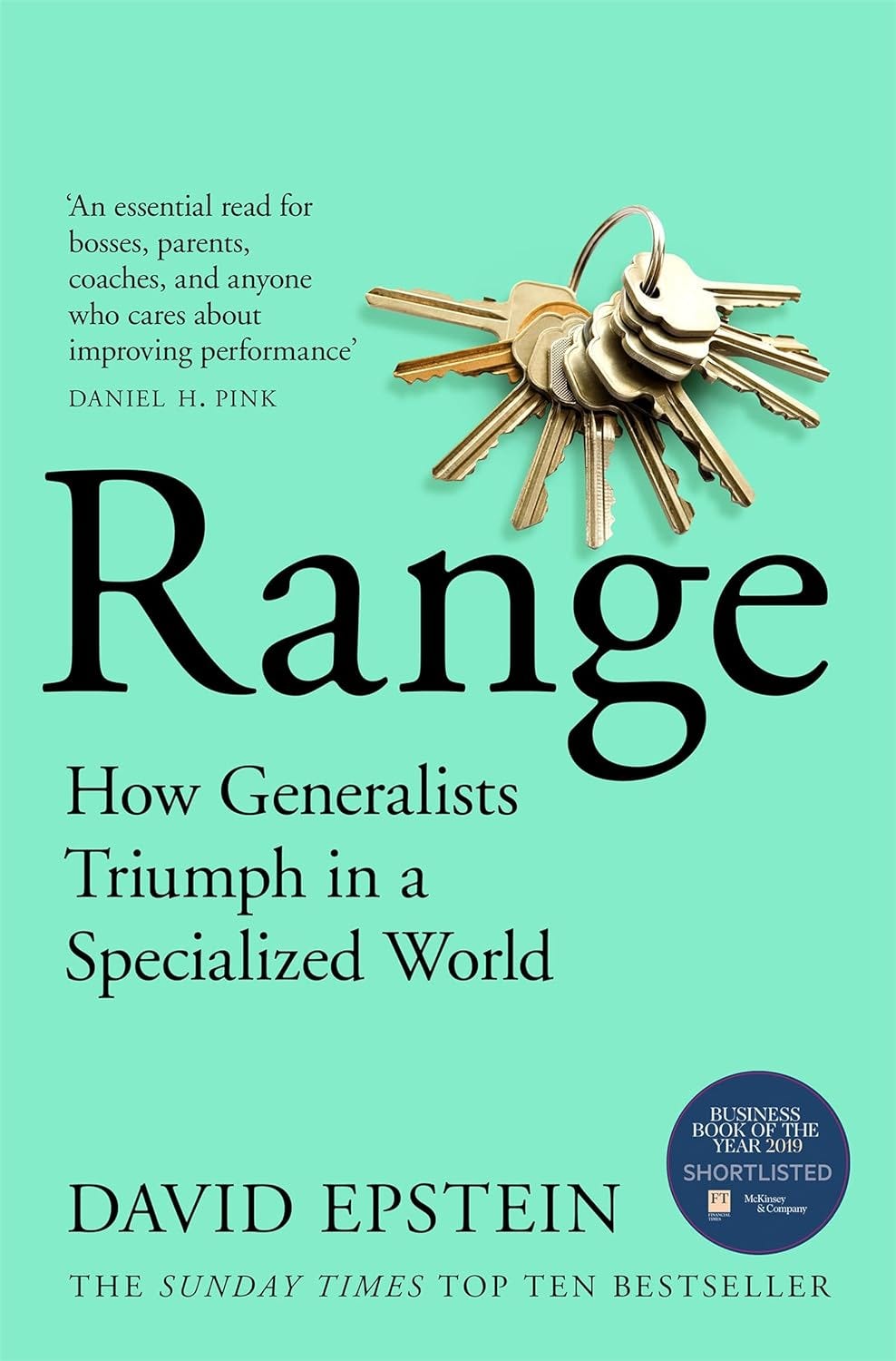Imagine two athletes: one starts training in a specific sport at a very young age and practices intensively, while the other explores a variety of sports and only later specializes in one.
Well, that’s the contrasting story of Tiger Woods and Roger Federer. Woods was made to practice golf intensively from a very young age while Federer was given the freedom to explore a number of sports and only settled on tennis in his late teens by his own choice.
In our society, we often hear stories of prodigies who start their journey towards mastery at a tender age. However, there’s another side to this coin.
Those who explore broadly before specializing can also reach the pinnacle of success.
Early specialization is a form of outsourcing one's future potential.
Atomic Ideas from the book ‘Range’ by David Epstein.
The Specialization Myth
Society and traditional education systems often push the idea that early specialization is the key to success. However, research shows that early specialization can leave individuals less adaptable, less creative, and more prone to burnout in the long run.
Kind vs. Wicked Learning Environments
"Kind" learning environments (like chess or golf) have clear rules, predictable patterns, and offer immediate feedback, facilitating rapid improvement through specialization.
"Wicked" environments (like business, medicine, or policymaking) are marked by complexity, uncertainty, and a lack of ready-made solutions.
Quick update: Members of India can subscribe using Razorpay (supports UP) using this link.
Early specialization can backfire in these wicked environments, where adaptability and breadth prove far more valuable.
Wicked environments punish early specialization, and the only people who do well are those who figure out how to sample widely, learn deeply, and integrate broadly
The Benefits of Breadth
Individuals with a broader range of experiences, knowledge, and skills are often better at problem-solving, innovation, and adapting to changing circumstances. "Range" allows for the transfer of concepts between fields and the ability to see connections that specialists might miss.
When problems are difficult, what matters most is thinking about them in different ways and from different angles
The world is not always kind, with clear rules and predictable outcomes. More often, it’s wicked, with unclear rules and unpredictable outcomes. In such a world, having a range of experiences can be more beneficial than intense specialization.
So, whether you’re an athlete, a musician, a scientist, or a business leader, remember that there’s more than one path to success. Exploring broadly, being flexible, and embracing diverse experiences and perspectives can help you navigate both the kind and the wicked environments of life.
In the end, it’s not just about being a specialist or a generalist. It’s about having the range to adapt, learn, and grow. So, go ahead, explore, and embrace your range!
The most effective kind of learning... is often the least efficient in appearance, the kind that appears to meander all over the place before alighting on its destination
The Sampling Period Instead of specializing immediately, it's wiser to embrace a "sampling period" where exploration across different fields is actively encouraged. This helps individuals uncover their true interests, discover hidden talents, and make informed choices when they eventually do specialize. It's about finding where your unique contributions align with the world's needs.
Match Quality The key isn't just about exploring broadly, but about finding the right match between your interests, talents, and available opportunities. It's about understanding where your unique blend of skills and knowledge can make the biggest impact, fostering a sense of both fulfillment and success.
The Outsider Advantage Generalists and those who switch fields later in life often possess the advantage of new perspectives. They innovate by connecting established ideas in unexpected ways, bringing a fresh outlook that those deeply entrenched within a single field may lack. Range facilitates unconventional thinking and can be the catalyst for significant breakthroughs.
The Power of Analogies The ability to draw analogies and make connections between seemingly unrelated fields is an incredibly powerful tool. It aids in problem-solving, idea generation, and understanding complex systems. Range fosters our ability to recognize patterns and transfer knowledge across domains.
The 10,000 Hour Rule Myth While deliberate practice is essential for any type of mastery, the idea that 10,000 hours automatically guarantees expertise is overly simplistic. It ignores the importance of factors like adaptability, breadth of experience, and the quality and focus of that practice.
The Importance of Failure Embracing failure and experimentation as valuable learning opportunities is vital. Taking calculated risks, venturing outside one's comfort zone, and reframing failure as a stepping stone cultivates a growth mindset, leading to greater resilience over time.
Happy Range(ing) !




